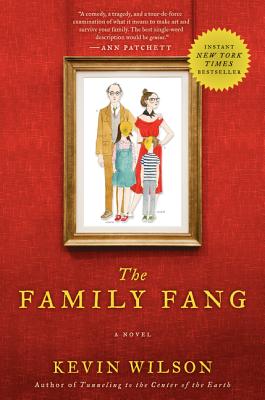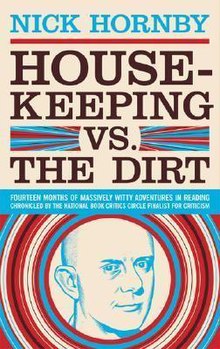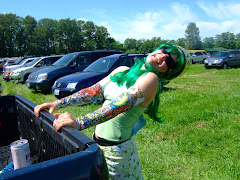Inspired by my friend, author Cami Ostman's selection of this blog as one of her fifteen favorites, I am updating it with some new recommendations while I figure out how to manipulate the infinitely more confusing format of my new blog, Sexier Than Stupid (www.sexierthanstupid.com) over at WordPress. Holy Mother of Moses that thing is more complicated than I expected. But I own the domain name and can soon be writing posts there. Soon. Really.
In October, I got back into the groove with my reading. School stuff squared away, and 40 minutes twice a week during my classes' silent reading time allowed me to plow through some new titles, with fabulous results: I have some (mostly) great recommendations and am much more smarterer than ever before.
As promised, I finished some of my nightstand pile reads, including Sugar in My Bowl, a collection of essays by women about sex, edited by Erica Jong. Meh. I like reading about other women's attitudes and ideas about sex, but this wasn't (in my opinion) a particularly outstanding collection. One author writes about being a prude, Jong's daughter writes about being conservative despite growing up with one of the 70s most notorious authors, etc. I have read collections I enjoyed and remembered more. (But hey--check out that cover!)
 The Family Fang by Kevin Wilson was amazing. Wilson's writing is of the type that makes me want to write (that's always the truest proof for me that a book is incredible: it makes me want to create something as good). Wilson's novel revolves around the Fangs, a family of four who are warped in a particularly unique way. Parents Caleb and Camille are performance artists, and have raised their children, Buster and Annie, as (mostly unwilling) participants in their various acts of improvisational chaos, an upbringing that has consequences for the two as they enter adulthood and struggle to make sense of their past and forge more normal lives outside their weird family. When personal crises send adults Annie and Buster back home to live with their parents, the elder Fangs disappear, leading everyone to wonder whether they've been the victims of foul play or are simply enacting one final, triumphant drama. The truth turns out to be even stranger than anyone would have guessed.
The Family Fang by Kevin Wilson was amazing. Wilson's writing is of the type that makes me want to write (that's always the truest proof for me that a book is incredible: it makes me want to create something as good). Wilson's novel revolves around the Fangs, a family of four who are warped in a particularly unique way. Parents Caleb and Camille are performance artists, and have raised their children, Buster and Annie, as (mostly unwilling) participants in their various acts of improvisational chaos, an upbringing that has consequences for the two as they enter adulthood and struggle to make sense of their past and forge more normal lives outside their weird family. When personal crises send adults Annie and Buster back home to live with their parents, the elder Fangs disappear, leading everyone to wonder whether they've been the victims of foul play or are simply enacting one final, triumphant drama. The truth turns out to be even stranger than anyone would have guessed.Dog On It by Spencer Quinn is a funny mystery narrated by a dog. Every time I tried to paste the cover image here, it screwed up the formatting and caused me to swear profusely. Thusly, I deleted the image and rewrote the summary of the book three times before finally giving up. At any rate, Chet describes the case that his human, Bernie, a priviate investigator, gets embroiled in. A very sweet story, and the dog-as-narrator gimmick actually works surprisingly well.
I hit a blue period and bought Chelsea Handler's books, Lies That Chelsea Handler Told Me and Chelsea Chelsea Bang Bang because she is hilariously nasty. In the first, Chelsea's friends recount their experiences as victims of her numerous, and quite elaborate practical jokes. It's amazing, frankly, that she has any friends after the pranks she pulls. But I guess when you're gorgeous and rich and have your own TV show, you can buy your friends a new house or a car when you hurt their feelings and all is right with the world. If you're a fan of Chelsea Lately, you'll appreciate this book even more, since most of the writers are folks who appear on or behind the scenes and/or are referenced in Handler's other books. Chelsea Handler is an acquired taste. It's cold here, and dark, and it rains too much, so I've acquired a taste for tasteless humor. Cheer me up , Chelsea. Anytime.
We the Animals by Justin Torres is a super-short novel that I suspect is semi-autobiographical focusing on the lives of three young brothers and their parents, who are alternately passionately in love or angrily at odds with one another. The narrator is the youngest of the three boys, and through his eyes, we watch his parents struggle to make ends meet and experience the challenges he faces growing up homosexual amid brothers who are aggressively male.
I Remember Nothing by Nora Ephron disappointed me after I Feel Bad About My Neck, her previous collection about the indignities of aging. I felt like the more recent collection contained a lot of "in the good old days" complaints that weren't particularly insightful or original and made "getting old" a code phrase for "getting crabby," which it might be, but I don't want to read a whole book about it. Ephron's earlier work (picture here) was much, much more enjoyable. Read it instead. And while you're at it, let me remind you about How Not to Act Old by Pamela Redmond Satran, which is the funniest, and most helpful, book you can read about getting. Her blog's awesome, too.
The Talk-Funny Girl by Roland Merullo was the best book I read this month. The main character is Marjorie, a teenage girl who has been raised in isolation by parents who are members of a small, strange religious group that inflicts some unusual punishments on misbehaving children. Her parents' lack of interaction with the community around them has led them to develop bizarre speech patterns, a family dialect intelligible--but just barely--by those around them. When Marjorie's aunt finds her a job with a local man in town who is constructing his own personal cathedral in town, Marjorie's life is irrevocably changed for the better. In the shadows of her growing relationship with her employer, the stonemason, Marjorie's life is haunted by the mysterious disappearances of several local girls. The story of her growing courage to stand up to her family, the gentle, sweet relationship with her employer, and the dogged attempts by her aunt to help her escape her parents make this a thoughtful, unforgettable read.
On my reading list for November: several novels, more humor, Miranda July's new, weird-looking non-fiction book, and a thick, colorful guide to WordPress. If I get around to reading that last one (and whoa, not much more exciting than a computer manual), I'll get my new blog up and running in time for Christmas. I hope.



















































